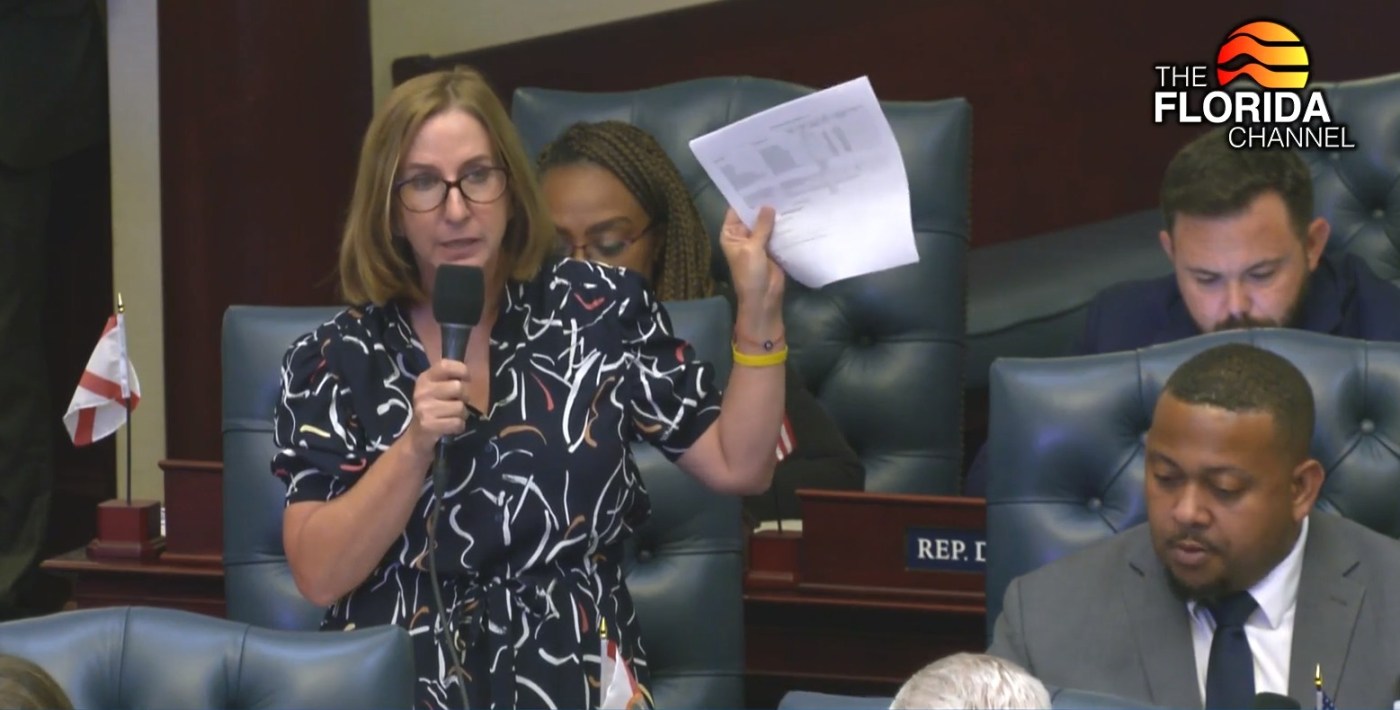Top Stories
Florida’s New Charter School Law Sparks Outrage Among Parents

UPDATE: An urgent development in Florida’s education system is causing widespread concern as a new law takes effect this week, allowing charter schools to claim classrooms within traditional public schools at no cost. This controversial law, known as the Schools of Hope initiative, threatens to disrupt the educational landscape for nearly 3 million students across the state.
Starting immediately, charter school operators can lay claim to space in public schools, including high-performing institutions. In Broward County, for instance, operators have sent demand letters targeting 27 schools, including esteemed “A” rated schools and special education centers. These actions raise alarm bells among parents and educators, who fear significant disruptions to their children’s education.
State Representative Robin Bartleman, representing House District 103, has voiced her strong opposition to the law. She argues that it unfairly burdens traditional public schools by requiring them to cover operational costs—such as security, utilities, and transportation—without receiving any reimbursement from the charter schools. “This is a real estate grab with no guardrails to protect our public school students,” Bartleman emphasized.
The law allows charter schools to operate without paying for critical services, effectively shifting the financial responsibility onto local school districts. This means public schools will be forced to use funds intended for their own students to support these charter schools, which already receive millions in taxpayer dollars. The potential financial strain on districts could reach into the millions, jeopardizing resources for traditional public schools.
Officials warn that this could lead to severe consequences for students, particularly in schools that require smaller teacher-to-student ratios. “Will traditional schools be forced to pay for all services, including special education therapies for charter school students?” Bartleman questioned, highlighting the inequities in funding and service provision.
As the law stands, charter school operators can claim classrooms on a first-come, first-served basis. This has led to aggressive tactics, with some providers already laying claim to prime classroom spaces in successful schools, even where there are no persistently low-performing schools nearby. This behavior underscores the financial motivations behind the initiative, rather than a focus on educational quality.
The urgency for legislative action is palpable as many families depend on neighborhood schools for their children’s education. With nearly 3 million families choosing public schools, their voices must be heard. Bartleman is advocating for the Legislature to rewrite the law, calling for equitable negotiations between charter operators and school districts.
Parents and community members are encouraged to rally in support of traditional public schools, demanding that lawmakers implement protective measures. The narrative surrounding these educational changes is unfolding rapidly, and the implications for Florida’s children are profound.
Next steps: Attention will now turn to the Florida Legislature as advocates push for necessary changes to this law. Parents and educators are urged to stay informed about developments and engage with local representatives to ensure that their children’s educational futures are safeguarded.
As this situation evolves, it remains crucial for stakeholders to monitor the impact of the Schools of Hope initiative and advocate for a balanced approach that benefits all students across Florida.
-

 Science3 weeks ago
Science3 weeks agoInterstellar Object 3I/ATLAS Emits Unique Metal Alloy, Says Scientist
-

 Science3 weeks ago
Science3 weeks agoResearchers Achieve Fastest Genome Sequencing in Under Four Hours
-

 Politics3 weeks ago
Politics3 weeks agoAfghan Refugee Detained by ICE After Asylum Hearing in New York
-

 Business3 weeks ago
Business3 weeks agoIconic Sand Dollar Social Club Listed for $3 Million in Folly Beach
-

 Health3 weeks ago
Health3 weeks agoPeptilogics Secures $78 Million to Combat Prosthetic Joint Infections
-

 Lifestyle3 weeks ago
Lifestyle3 weeks agoJump for Good: San Clemente Pier Fundraiser Allows Legal Leaps
-

 Science3 weeks ago
Science3 weeks agoMars Observed: Detailed Imaging Reveals Dust Avalanche Dynamics
-

 Business3 weeks ago
Business3 weeks agoMcEwen Inc. Secures Tartan Lake Gold Mine Through Acquisition
-

 World3 weeks ago
World3 weeks agoUS Passport Ranks Drop Out of Top 10 for First Time Ever
-

 Health3 weeks ago
Health3 weeks agoResearcher Uncovers Zika Virus Pathway to Placenta Using Nanotubes
-

 Entertainment3 weeks ago
Entertainment3 weeks agoJennifer Lopez Addresses A-Rod Split in Candid Interview
-

 Business3 weeks ago
Business3 weeks agoSan Jose High-Rise Faces Foreclosure Over $182.5 Million Loan









